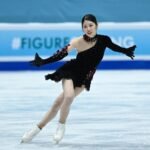For a country that seems hell bent on the ‘respect your elders’ above all else narrative they don’t seem to hold much regard for the dead if they just allow funeral wreaths to be just used for any small grievance kpop stans have.
I know someone’s going to comment saying ‘it’s their culture you wouldn’t understand’ – girl if anyone ‘understands‘ this they need to go to therapy. Stat.
Thankfully (I don’t want to use this word cause ew, but for lack of better word) people have become more vocal about how disgusting a practice it is since S’s (had to sensor his name in order to post but iykyk) departure and how he was treated by crazy fans but the fact that THAT didn’t start a higher level conversation of banning any abuse of the practice of the sort is loopy to me. It just seems over the last few months/years that sensationalism wins over literally everything else in Korea regardless of the extreme consequences – even death. Everyone eventually moves on and the cycle repeats over and over again.
Someone said this in another reddit comment somewhere and it pretty much sums up the practice:
’Civil public demonstration that does not invade private property’ when the reality is it’s just straight up a death threat.’
I’m interested to know who originally came up with the idea of using funeral wreaths in this sort of way? If there was any sort of ethics (I know the bar is extremely low when you look at how they treat sex crimes but alas) there would at the very least be discussions at a higher level of getting rid of the practice for the most simple of reasons. It’s an awful look for the country and they should be embarrassed by it.
submitted by /u/-puca-
[link] [comments]















